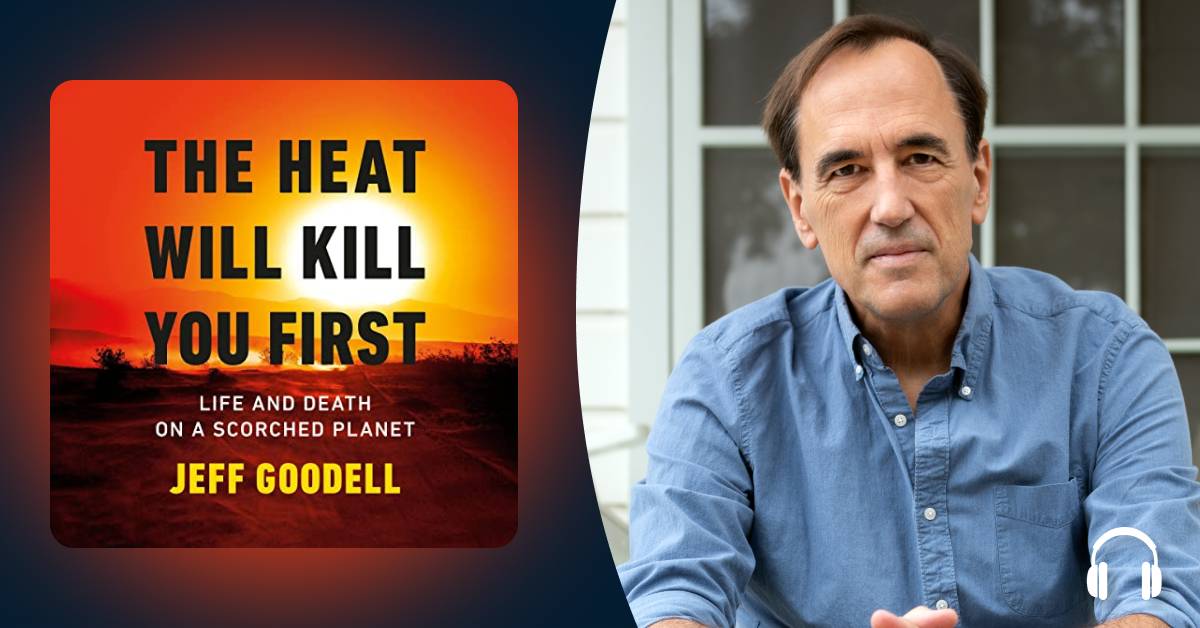Have you ever wondered where the garbage you discard really goes at the end of the day? Then hitch a ride with Alexander Clapp as he explores the strangely mobile afterlife of trash in Waste Wars. Here, the American journalist takes a second look at the fuming truths he uncovered while pursuing rancid bits of rubbish on their way from community waste bins to towering dump heaps in Turkey, Guatemala, Ghana, and beyond—offering insights into how we can clean up our act by ultimately reimagining our relationship with recyclables.
Haley Hill: Was there a turning point in your own relationship to trash that inspired you to write this audiobook?
Alexander Clapp: It must have been six years ago. I was on a bus, traveling through Romania, when I looked out the window and saw fields piled to the knee with plastic waste. I later learned that much of it had been hustled in from Germany and France, and that its fate was to be torched in cement factories, or to rot for the rest of time in the Romanian countryside.
I couldn't make sense of it. Romania, a poor country, boasted Europe's most dysfunctional waste management system. And yet here it was on the receiving end of vast quantities of trash from the other half of the continent, from the rich countries that liked to brag about their environmental records. How was this happening?
The more I dug into the problem, the more sinister and hypocritical was the picture that emerged. This wasn't just a European phenomenon. It was a colossal, global one. For 40 years now, the stuff discarded by citizens of one half of the planet—and by Americans more than anyone—has come with a filthy little secret: Its fate is often to end up thousands of miles away, in those countries that can least afford to take it.
What do you wish more Americans knew about the trash trade?
If something seems too good to be true, that's because it probably is. Our garbage doesn't magically vanish or seamlessly slip back into production streams. Someone pays the price for our lives of extraordinary convenience. And here's the thing about the waste trade. It's not the trash that heads to a local landfill that travels across the planet and often inflicts great harm on unsuspecting populations and environments. No. It's typically the stuff we put in the recycling bin that we believe is helping the planet. This is the stuff that gets shipped away. The ability of many of these materials—plastic, Styrofoam, Tetra Pak—to be functionally recycled is dubious at best. What is irrefutable is that, upon arrival in developing countries, these materials leave behind noxious masses of toxins and contaminants and air pollution and microsynthetics, the aggregate effects of which we are only just now beginning to understand.
What, if anything, did you learn in your research for this title that made you feel hopeful?
It doesn't have to be this way. The trash trade may now be a trillion dollar business, but it's also a relatively recent phenomenon, which began only in the closing years of the Cold War. There was a time, not so very long ago, when we didn't do this: externalize our consumption footprints while holding distant countries responsible for processing our waste. There was a time not so long ago when we didn't package everything in plastic! The more we understand the origins and dimensions of the problem—that the narrative we've been told about a lot of recycling often isn't true—the more we might begin to redress the situation.
What advice do you have for listeners who are looking to be more mindful about their waste?
Avoid plastic at all costs while keeping in mind that our plastic epidemic will not be solved through individual morality alone. We must offload our plastic waste onto the southern half of the planet not merely because we consume far too much of it, but because plastic is much too easy and profitable to manufacture in the first place. This is a problem that must be solved at its source: drastically curbing plastic production itself through globe-spanning legislation.
Talking trash with Alexander Clapp
The author of "Waste Wars" wastes no time when it comes to exposing the dirty little secrets of the international trash trade, finding hope beneath it all.

Tags
Up Next

“The Heat Will Kill You First” is part travelogue, part science lesson—and entirely fascinating
Veteran climate journalist Jeff Goodell spanned the globe to tell the story of extreme heat in this “beach read for the climate age.” You’ll never think of heat waves the same way again.

Confronting the realities of the climate crisis through fiction

Dig into some food for thought with these climate-conscious, cruelty-free listens
